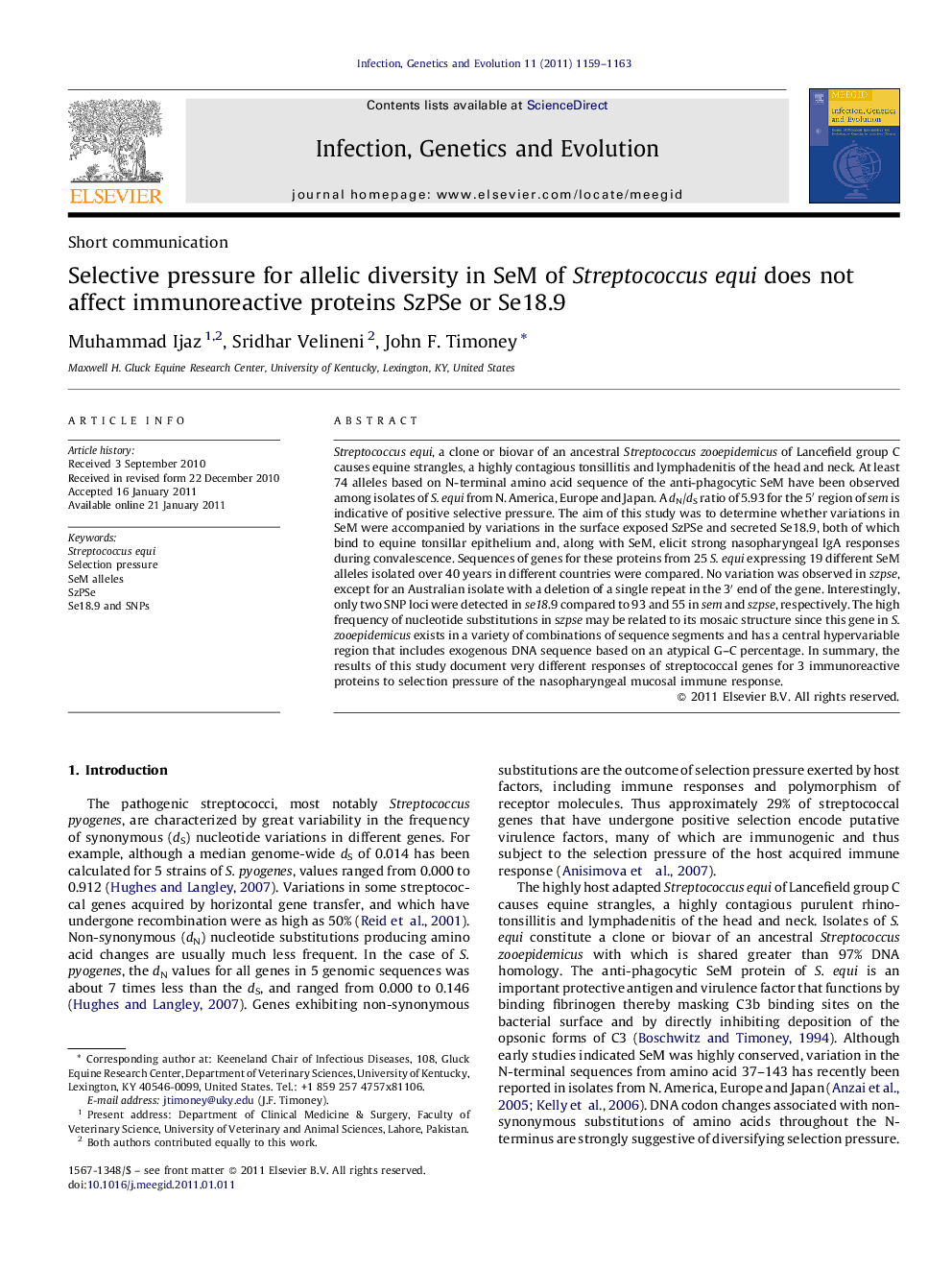| Article ID | Journal | Published Year | Pages | File Type |
|---|---|---|---|---|
| 2823140 | Infection, Genetics and Evolution | 2011 | 5 Pages |
Streptococcus equi, a clone or biovar of an ancestral Streptococcus zooepidemicus of Lancefield group C causes equine strangles, a highly contagious tonsillitis and lymphadenitis of the head and neck. At least 74 alleles based on N-terminal amino acid sequence of the anti-phagocytic SeM have been observed among isolates of S. equi from N. America, Europe and Japan. A dN/dS ratio of 5.93 for the 5′ region of sem is indicative of positive selective pressure. The aim of this study was to determine whether variations in SeM were accompanied by variations in the surface exposed SzPSe and secreted Se18.9, both of which bind to equine tonsillar epithelium and, along with SeM, elicit strong nasopharyngeal IgA responses during convalescence. Sequences of genes for these proteins from 25 S. equi expressing 19 different SeM alleles isolated over 40 years in different countries were compared. No variation was observed in szpse, except for an Australian isolate with a deletion of a single repeat in the 3′ end of the gene. Interestingly, only two SNP loci were detected in se18.9 compared to 93 and 55 in sem and szpse, respectively. The high frequency of nucleotide substitutions in szpse may be related to its mosaic structure since this gene in S. zooepidemicus exists in a variety of combinations of sequence segments and has a central hypervariable region that includes exogenous DNA sequence based on an atypical G–C percentage. In summary, the results of this study document very different responses of streptococcal genes for 3 immunoreactive proteins to selection pressure of the nasopharyngeal mucosal immune response.
